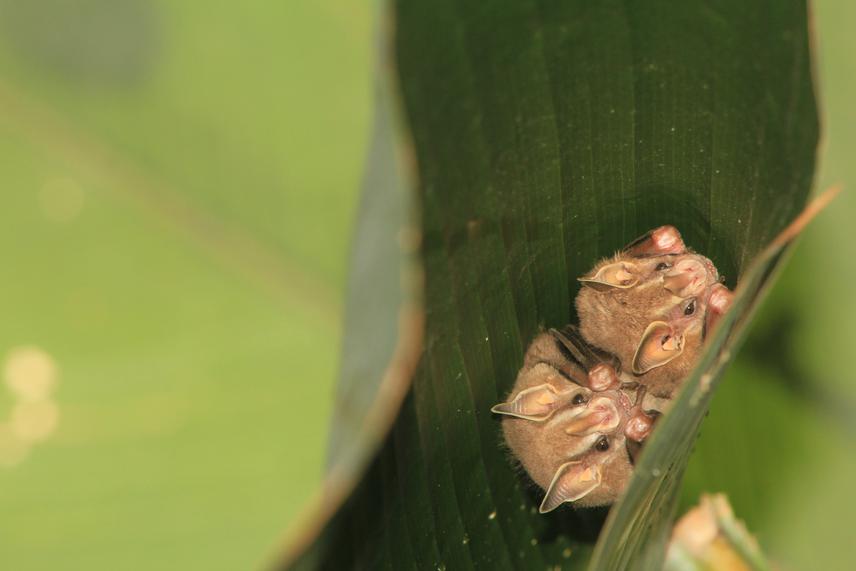Melissa Esther Rodríguez Menjívar
Other projects
9 Feb 2016
Genetic Diversity of Artibeus jamaicensis and Glossophaga soricina, in Forest Remnants Surrounded by Shade Coffee Plantations and Grasslands in El Salvador
With this project, I will be able to (1) determinate the effective role of small frugivorous phyllostomid bats in the maintenance of the flora composed by large-seeded plants in two alluvial forest of El Salvador, which will give information of the importance of one of the ecosystem services given by bats in areas where other large vertebrates dispersers had disappeared or are scarce. (2) To measure the understory coverage of the areas, considering that if there is an effective process of forest maintenance, there should be a medium level of understory coverage showing the restoration of the habitat. (3) To document the plant species used as tents by Phyllostomid bats in El Salvador, as there is no information on the topic in an alluvial forest (4) Involve and teach local biology students and assistants in the rural community.

Tent with Artibeus phaeotis, ANP Santa Rita.
The process of seed dispersal by bats is mostly based in small-seeded plants, although it has been proved the importance of bats dispersing large-seeded plants, which are associated with mature habitats and the dispersal of this type of seeds are traditionally linked with large frugivorous vertebrates, therefore there are still few studies on bats and their contribution in dispersing big seeds in the neotropics, especially in El Salvador, where most of the large frugivorous vertebrates are rare or threatened and where most of the forest cover has been removed and change for crops. For that reason, with this research, I will attempt to document the dispersal of large-seeded plants by bats in two alluvial forests, which is now a rare ecosystem in El Salvador, as most of the forest in the Pacific near the cost has been removed for agriculture or tourism. The research will also give information about trees species being dispersed by bats, considering that human pressure and land changes had cause reduction or extirpation of large frugivorous species in forest remnants. And will finally measure the understory coverage in each forest, as zoocory is the main contribution to regeneration and succession by animals in tropical forests.
The research will contribute to the information of tent-making bats behaviour in El Salvador. The information obtained by the research will be of great importance as large-seeded plants present in bat diets tend to form species that grow to become canopy trees in secondary forest or constitute high understory vegetation. Also, some large-seeded species are commercially valuable species in the region. Moreover, even though seed dispersal has been a commonly studied topic in other countries, in El Salvador there are only two studies and one bibliographic review of bats as small seed dispersers.
The results of this research will give information for future conservation actions in the area, however, developing this project and its objectives, is only the first step to identify some management measures and to know more about the role of tent-roosting bats as large-seed dispersers in those areas.